A severely wounded female orangutan was rescued in the Aceh province of Sumatra, Indonesia on March 9.
Subsequent medical checks revealed that her body was riddled with 74 airgun pellets.
Female orangutan was a mother
According to a Facebook post by the Orangutan Information Centre (OIC), the organisation's Human Orangutan Conflict Response Unit (HOCRU) team rescued the 30-year-old orangutan following information provided by Jakarta's Conservation of Natural Resources.
The HOCRU team found the orangutan isolated within a palm oil plantation.
However, she was not alone—a 1-month-old baby was with her.
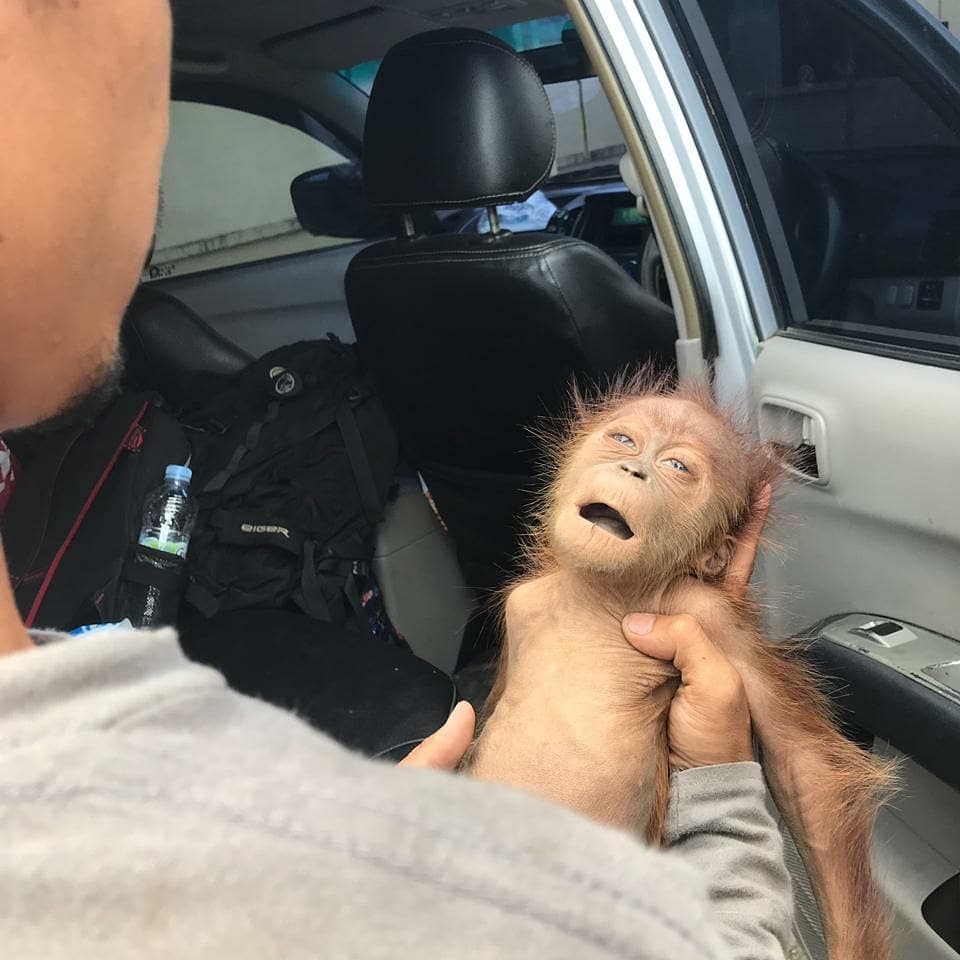 Photo from Orangutan International Centre, Facebook
Photo from Orangutan International Centre, Facebook
Orangutans were chased by plantation workers, baby succumbed to injuries
Upon closer inspection at the site, rescue workers realised the mother orangutan was severely wounded.
She had injuries, possibly inflicted by sharp tools, on her arm, fingers and leg.
Be warned, as the photo below may be distressing to some viewers.
*WARNING: GRAPHIC CONTENT*
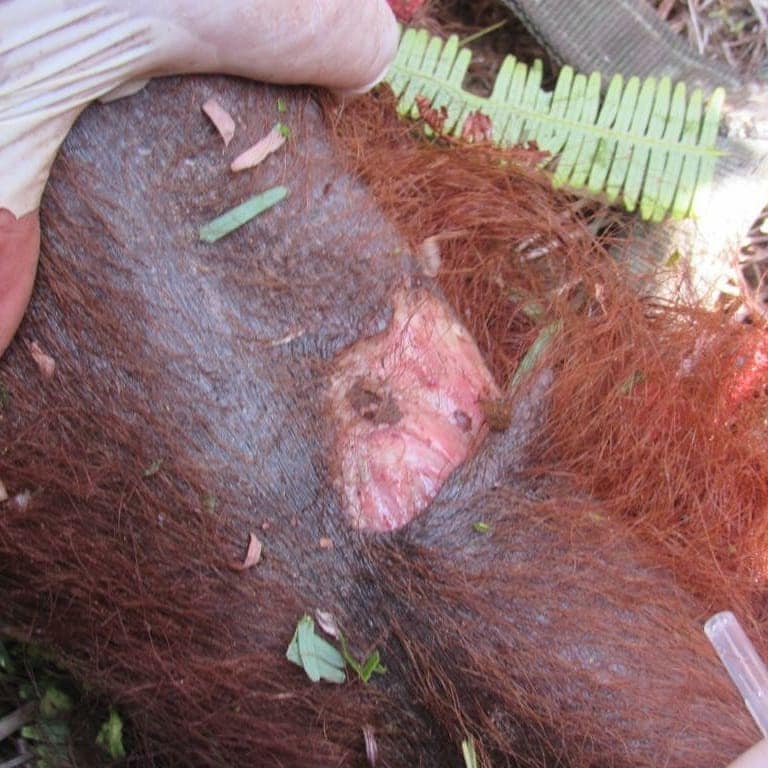 The mother orangutan's arm injury. Photo from Orangutan International Centre, Facebook.
The mother orangutan's arm injury. Photo from Orangutan International Centre, Facebook.
Her eyes were damaged from airgun pellets, according to The Jakarta Post.
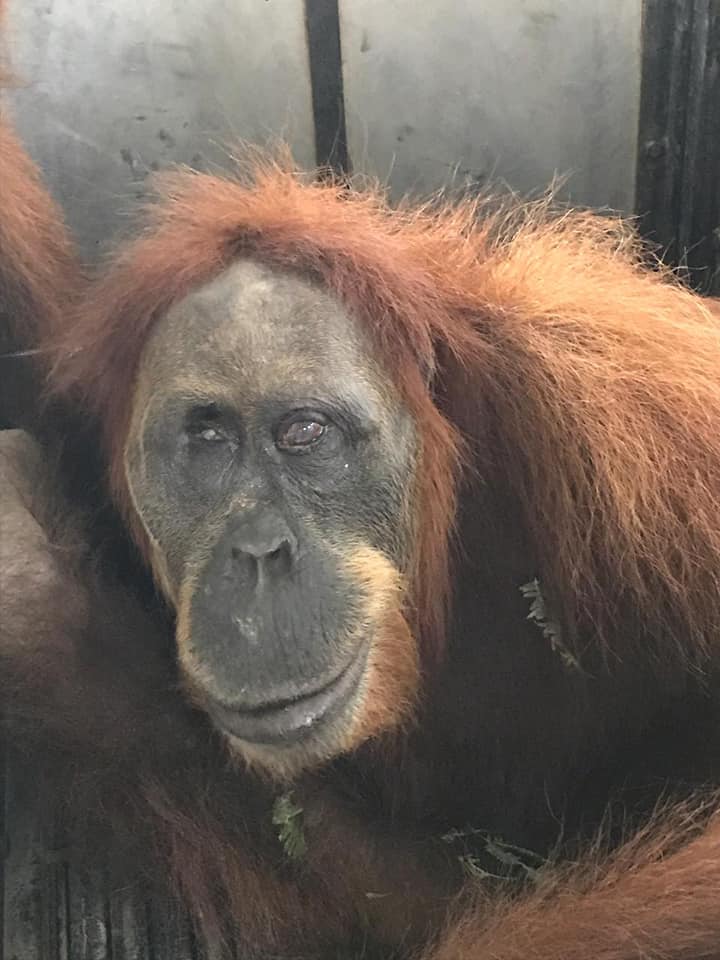 Photo from Orangutan Information Centre, Facebook
Photo from Orangutan Information Centre, Facebook
The team from OIC proceeded to tranquillise both orangutans, and swiftly transported them to the quarantine centre.
Tragically, the baby died on the way to the centre, due to a combination of injuries and malnutrition.
A veterinarian from the Sustainable Ecosystem Foundation told The Jakarta Post that the orangutans had been chased around by workers at the plantation for three days.
The mother was thus rendered unable to feed her baby due to her injuries, which explained the baby's malnourished state during the rescue.
Severely wounded
An x-ray conducted by the Sumatran Orangutan Conservation Programme (SOCP) at its facilities revealed the appalling extent of the female orangutan's injuries.
A total of 74 pellets were found spread throughout her body, and her hands and legs were fractured as well.
 Photo from Sumatran Orangutan Conservation Programme, Facebook
Photo from Sumatran Orangutan Conservation Programme, Facebook
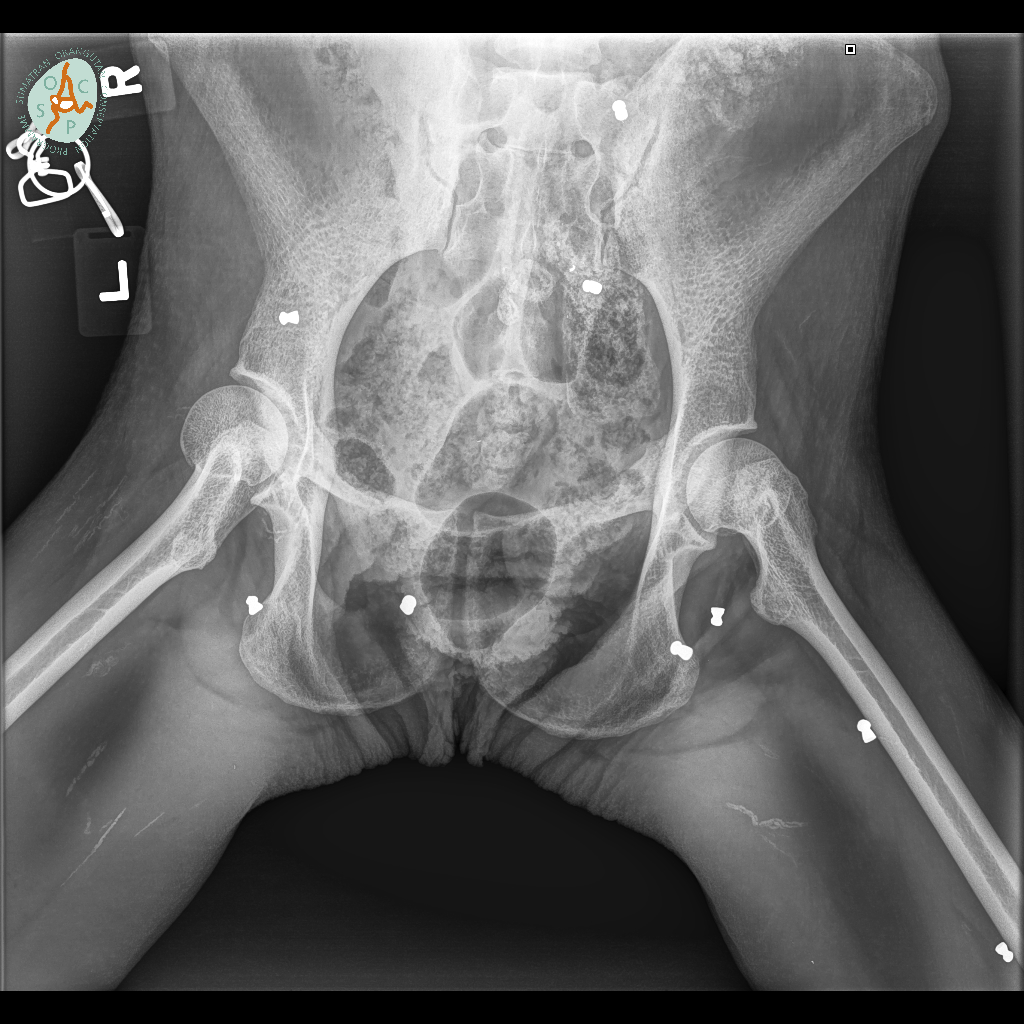 Photo from Sumatran Orangutan Conservation Programme, Facebook
Photo from Sumatran Orangutan Conservation Programme, Facebook
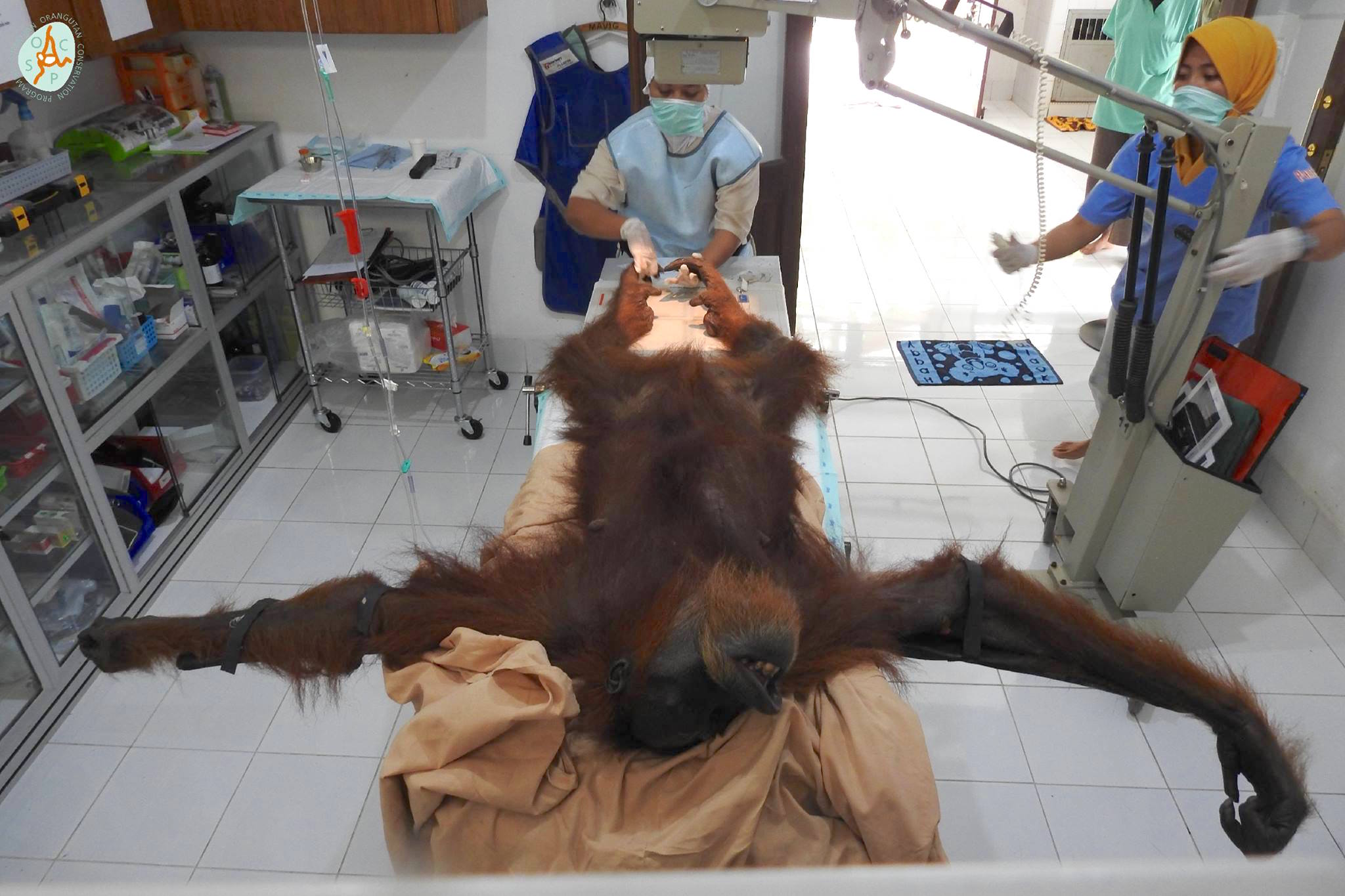 The orangutan being operated on at the rehabilitation centre. Photo from Sumatran Orangutan Conservation Programme, Facebook
The orangutan being operated on at the rehabilitation centre. Photo from Sumatran Orangutan Conservation Programme, Facebook
The orangutan has been named Hope, and is currently in a stable condition.
However, SOCP added that she will need "long time care and recovery treatment".
Not only will Hope the orangutan need to heal from her physical injuries, but she will require mental rehabilitation too after the loss of her baby.
The dark side of palm oil
Sumatran orangutans are classified as critically endangered, and number around only 7,500 in the wild.
Their population has faced a steep decline from habitat loss and poaching, but the biggest cause for the downfall of Indonesia's orangutans can be attributed to the expansion of the palm oil industry.
The global demand for palm oil has been rising since the 1960s, according to the Guardian.
Yet, the commodity has become so pervasive that it can now be found in everyday products ranging from lipstick, to shampoo, to chocolate and to packaged bread.
Indonesia is the biggest producer of palm oil, and their forests, home to orangutans and other native species like the Sumatran rhino, have been disappearing at the rate of one football pitch-sized of green every 25 seconds, the Guardian said.
The same Guardian article states that while companies like Unilever, and Pepsi have insisted they are taking Greenpeace's claims seriously, if Greenpeace's assertions are correct, there is no such thing as "100% sustainable" palm oil.
Top photos from Sumatran Orangutan Conservation Programme, Facebook
If you like what you read, follow us on Facebook, Instagram, Twitter and Telegram to get the latest updates.
